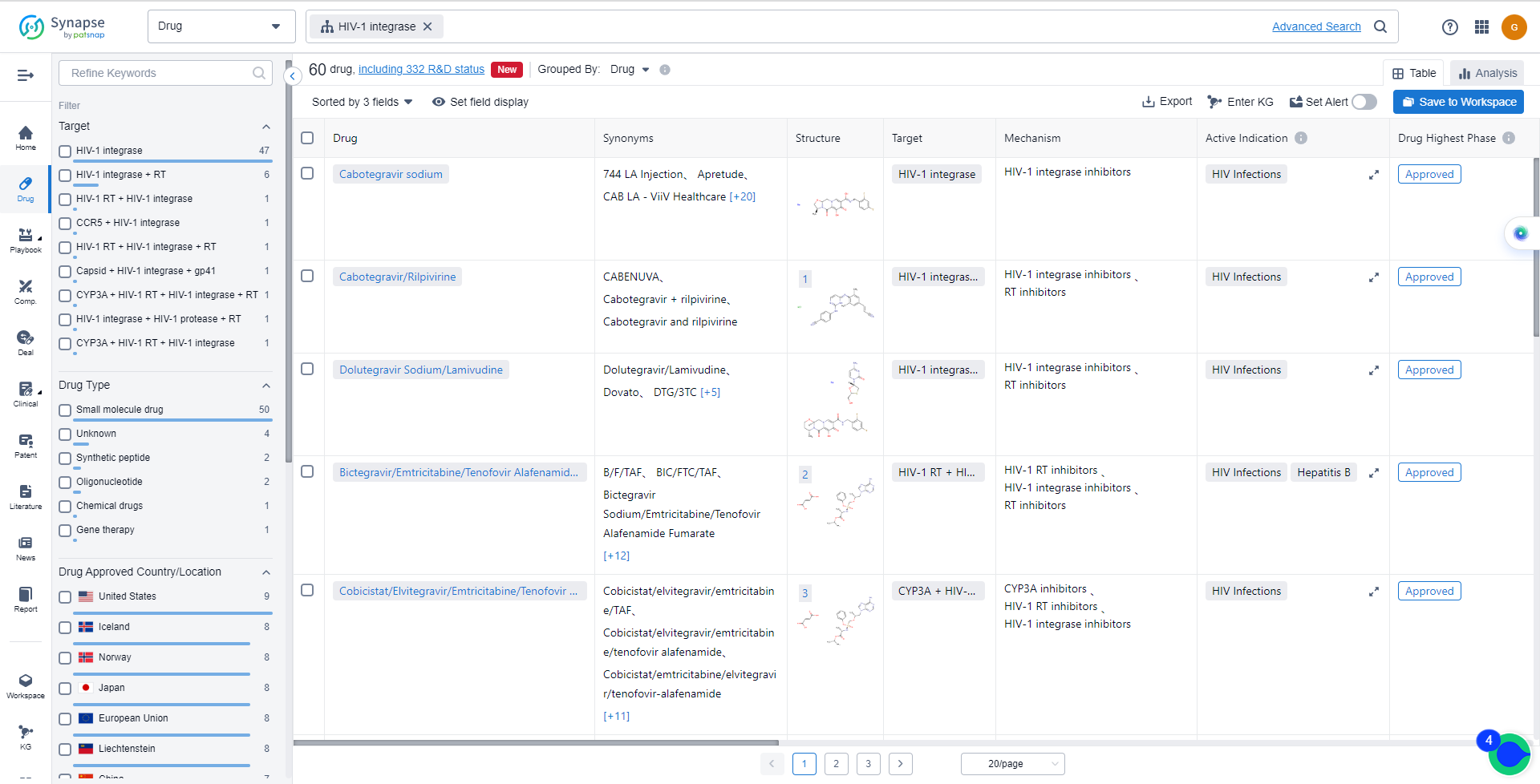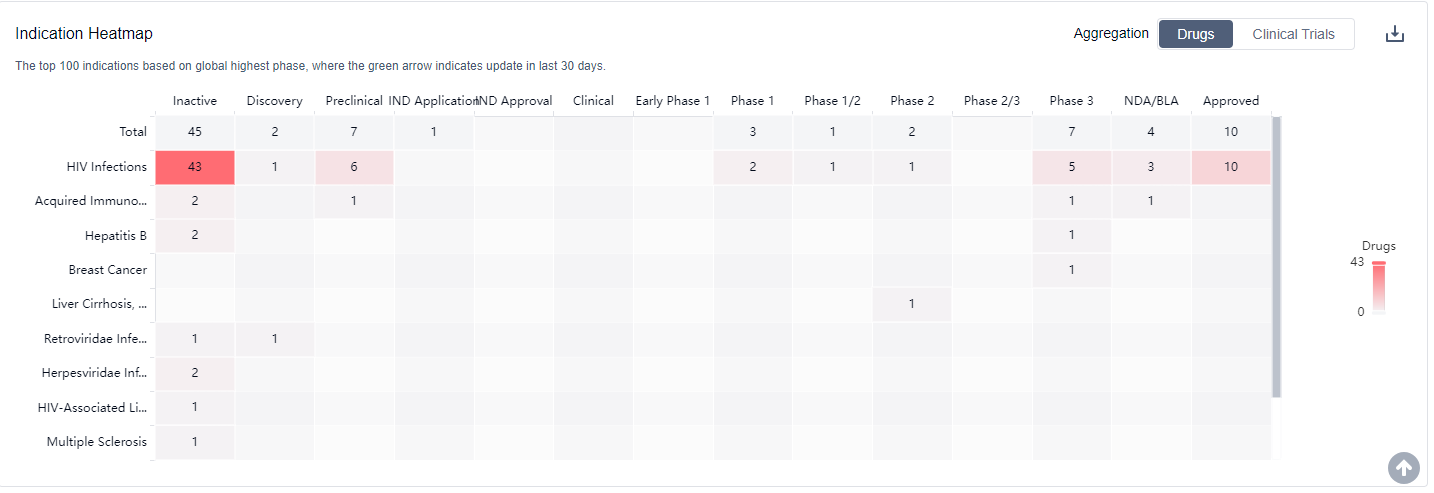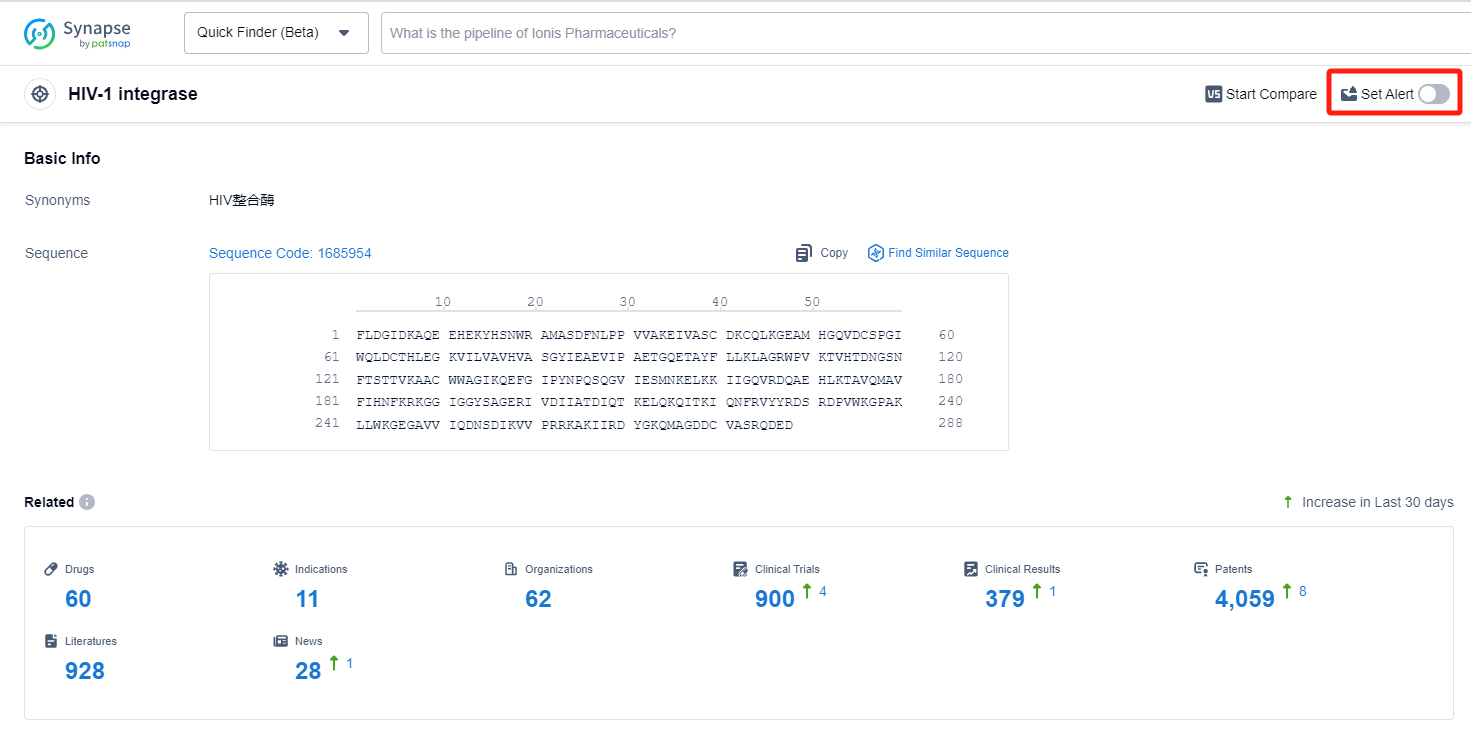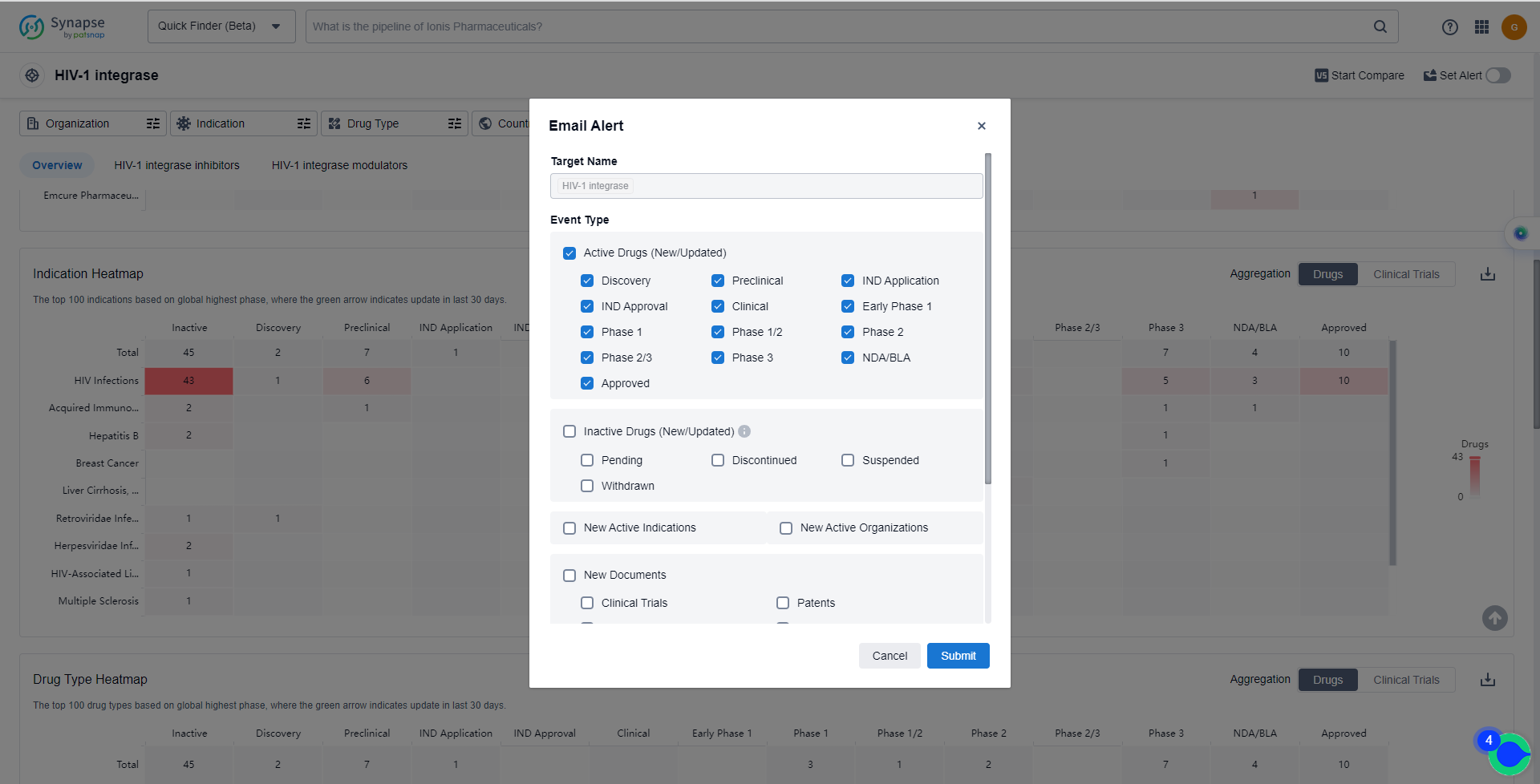What are HIV-1 integrase inhibitors and how do you quickly get the latest development progress?
HIV-1 integrase is an enzyme that plays a crucial role in the replication of the human immunodeficiency virus (HIV-1) within the human body. It is responsible for the integration of viral DNA into the host cell's genome, allowing the virus to establish a persistent infection. By catalyzing the integration process, HIV-1 integrase enables the virus to evade the immune system and replicate efficiently. Understanding the function of this enzyme has led to the development of integrase inhibitors, a class of antiretroviral drugs that target HIV-1 integrase and effectively suppress viral replication, helping to manage HIV infection and prevent the progression to acquired immunodeficiency syndrome (AIDS).
Antiretroviral therapy (ART) is the most important measure in the treatment of AIDS. With the widespread clinical application of ART, HIV drug resistance has become a significant factor affecting therapeutic efficacy. HIV-1 integrase inhibitors, a new target of action, have attracted widespread attention since their launch due to their high efficiency and low toxicity. They have become the first choice recommendation in many international AIDS treatment guidelines.
Based on the analysis of the data provided, GSK Plc, Gilead Sciences, Inc., and Merck & Co., Inc. are the companies growing fastest under the target HIV-1 integrase. The highest stage of development for this target is the approved stage, with drugs approved for the indication of HIV Infections. Small molecule drugs are progressing most rapidly under this target, indicating intense competition around innovative drugs. The United States, European Union, and Japan are the countries developing fastest under this target, with China showing significant progress. Overall, the current competitive landscape for the target HIV-1 integrase is promising, with potential for future development and advancements in the field.
The mechanism of action of HIV-1 integrase inhibitors
HIV-1 integrase inhibitors are a class of drugs used in the treatment of HIV/AIDS. HIV-1 integrase is an enzyme that plays a crucial role in the replication of the human immunodeficiency virus (HIV). It is responsible for inserting the viral DNA into the DNA of the host cell, allowing the virus to integrate and establish a persistent infection.
Integrase inhibitors work by blocking the activity of the HIV-1 integrase enzyme, preventing the integration of viral DNA into the host cell's DNA. This inhibits the replication of the virus and helps to control the progression of HIV/AIDS.
These inhibitors are typically used in combination with other antiretroviral drugs as part of highly active antiretroviral therapy (HAART). By targeting different stages of the HIV life cycle, combination therapy can effectively suppress viral replication, reduce the viral load, and improve immune function.
Some examples of HIV-1 integrase inhibitors include raltegravir, elvitegravir, dolutegravir, and bictegravir. These drugs are usually taken orally and are well-tolerated, with common side effects including headache, nausea, and diarrhea. Regular monitoring of viral load and CD4 cell count is essential to assess treatment effectiveness and adjust the therapy if needed.
It is important to note that HIV-1 integrase inhibitors are specifically designed to target the HIV-1 integrase enzyme and are not effective against other types of integrase or unrelated viruses. Additionally, like all antiretroviral drugs, they do not cure HIV/AIDS but can significantly improve the quality of life and increase the lifespan of individuals living with the disease.
Catalog of HIV-1 integrase Inhibitors
The currently marketed HIV-1 integrase inhibitors include:
- Cabotegravir sodium
- Cabotegravir/Rilpivirine
- Dolutegravir Sodium/Lamivudine
- Bictegravir/Emtricitabine/Tenofovir Alafenamide Fumarate
- Cobicistat/Elvitegravir/Emtricitabine/Tenofovir Alafenamide Fumarate
- Abacavir sulfate/Dolutegravir sodium/Lamivudine
- Dolutegravir Sodium
- Cobicistat/Elvitegravir/Emtricitabine/Tenofovir Disoproxil Fumarate
- Raltegravir Potassium
- Dolutegravir/Lamivudine/Tenofovir Disoproxil Fumarate
For more information, please click on the image below.
What is the purpose of using HIV-1 integrase inhibitors?
HIV-1 integrase inhibitors are a class of antiretroviral drugs used in the treatment of HIV/AIDS. For more information, please click on the image below to log in and search.
How can I get the most recent advancements in HIV-1 integrase inhibitors?
In the Synapse database, you can keep abreast of the latest research and development advances of HIV-1 integrase inhibitors anywhere and anytime, daily or weekly, through the "Set Alert" function. Click on the image below to embark on a brand new journey of drug discovery!








